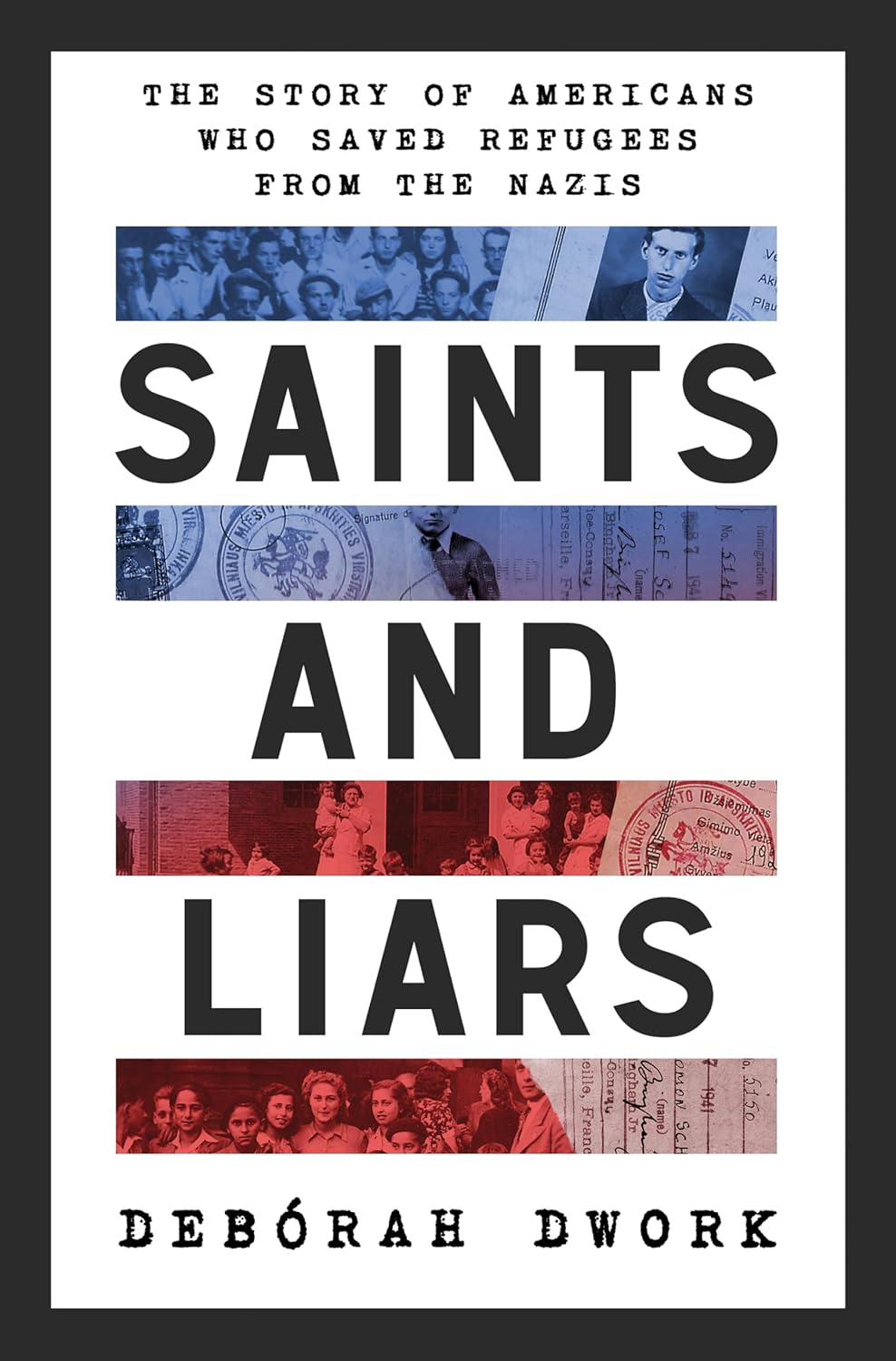Saints and Liars: The Story of Americans Who Saved Refugees from the Nazis
- By Debórah Dwork
- W.W. Norton & Company
- 256 pp.
- Reviewed by David O. Stewart
- January 7, 2025
An unsatisfying portrait of little-known WWII heroes.

As the stain of Nazi Germany’s oppression spread across Europe in the 1930s, news of that regime’s many crimes echoed widely. Adolf Hitler’s minions established their first concentration camps in 1933 for German political opponents. The camp system proliferated, extending to include other disfavored groups, notably Jews, Communists, gypsies, homosexuals, and the disabled.
Bloodless conquests of Austria and Czechoslovakia brought further expansion of the oppression machine. The camp system evolved into death camps operated to exterminate those groups. Throughout those years, targeted groups inside and outside German-controlled territory scrambled desperately to escape their dire situation. In Saints and Liars, author Debórah Dwork, who directs a center at the City University of New York for the study of the Holocaust, trains a light on five American-initiated efforts to aid those refugees.
The book offers an interesting narrative structure, focusing on five cities, one supposedly for each key year from 1939 to 1943: Prague in 1939, Vilna (now Vilnius) in 1940, Shanghai in 1941, Marseille in 1942, and finally, Lisbon in 1943. But the tale is a sprawling, unruly one that resists Dwork’s categories. Refugee-aid efforts in each location began earlier and lasted longer than the years assigned to them, while the Americans involved were more numerous than the eight spotlighted (and those eight weren’t always pivotal).
The misalignment between structure and facts causes the story to lose focus as it careens among locations, years, refugee groups, and the destinations sought by the would-be emigrants, while supposed leading figures disappear and then reappear. A blizzard of acronyms for different aid groups further hobbles comprehension.
Enjoying access to many original records, Dwork explores the jangled emotions and frustrations of the idealists who gambled with their own lives to help people in mortal danger. One dominant theme is the surprising level of personal friction and back-biting between the aid organizations and the individuals involved. Some of the conflicts reflect personality differences, but others reveal differing priorities and policies.
Certain aid groups strained to deliver as many refugees as possible to safety, although it could take weeks or months to spirit away one couple or a single family. Other groups focused on providing food and medical care to alleviate the misery of imprisoned populations. Jewish-sponsored organizations targeted the escape of Jewish populations — especially rabbis and yeshiva students — to ensure the preservation of that community. A Unitarian group emphasized saving leaders of democratic parties in Nazi-occupied lands, arguing that those individuals were at greatest risk of extermination and would best be able to restore liberal societies after the war. Other groups thought it unethical to prioritize aid to any particular cohort, a view that seems to resonate with the author.
Saints and Liars brings out common themes that cut across most of the five cities. The visa and immigration policies of host countries and those through which the refugees had to pass to reach safety (Vichy France, the Soviet Union, Japan, China, Spain, and Portugal) could be irrational and were subject to frequent and unexplained changes. Shifts in the fortunes of war might suddenly seal off a previously available escape route. And even the idealistic organizations sponsoring refugee assistance often exploited the wives of their European agents, converting them into unpaid fulltime workers while denying them respect, recognition, and scope for their work.
Particularly disappointing was Dwork’s decision not to hazard any estimate of how many people were actually saved or assisted by the groups she highlights, or by all of the national groups (including British and Canadian) that assisted the emigration of at-risk refugees. In view of the confusion and desperation of those days and years, and the clandestine nature of the work, precise numbers certainly are not available. Still, the scale of the crisis and the achievements of those courageous, well-meaning individuals warrant some effort to provide at least a rough estimate of their successes.
David O. Stewart has published five books of history and five historical novels. His current project follows the consequential lives of two athletes from the 1912 Stockholm Olympics, U.S. General George S. Patton Jr., and Nobel Peace Prize winner Philip Noel-Baker of Britain. Noel-Baker was deeply involved in refugee resettlement after both world wars.

